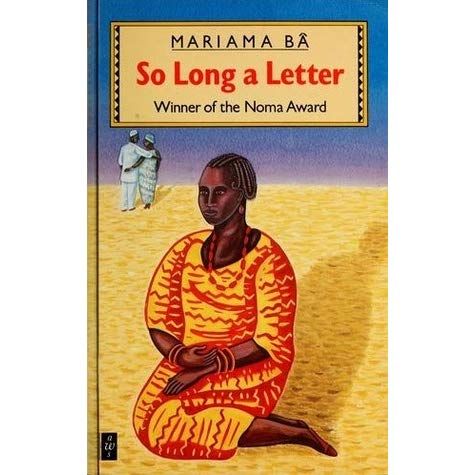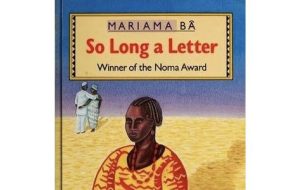So Long A Letter by Mariama Bâ
By: Mariam Abdulbaki
Mariama Bâ was the first Senegalese feminist novelist and a passionate feminist who advocated for the equal rights and self-determination of African women. Her award-winning novella So Long A Letter is a feminist critique of postcolonial Senegalese society. She explores ideas of gender within colonial, societal, and nationalist ideologies. In order to analyze and explore the limitations of women within post-colonial Senegalese society, Bâ compares and contrasts the experiences of Senegalese women regarding marriage. As well as highlighting the internal and external struggles to the limitations. In doing so, Bâ reveals to readers how lingering ideas of gender and masculinity from colonial times continues to plague Senegalese society. Lingering colonial ideology surrounding gender impacts and limits Senegalese women in their ability to be involved in the development of a post-colonial Senegal. They are limited in their access to political forums and are silenced when calling for the liberation of African women. As post-colonial Senegal struggles to form its own national identity independent of colonial identity, it continues to accept colonial ideology such as gender inequality and toxic masculinity. This is a contradiction that Bâ saw important to illustrate to readers. Due to persisting beliefs of gender inequality in society and the National Assembly as a byproduct of colonialism, Senegalese women find it incredibly difficult to engage and participate in government and politics. There are women within the novel who combat these limitations. And towards the end of the novel, Bâ mentions how there are women who advocate and fight fervently for the liberation of African women and the elimination of limitations imposed on women in society. As a student of colonial and imperial history, I found the novel very enlightening. It introduced me to new perspectives on colonial and post-colonial societies. It also presented me an insight into the feminist and nationalist struggle of African women. It is a great read for anyone looking to further understand the different forms of women’s struggle in Africa. Even though the novel is set in post-colonial Senegal, this struggle is similar and can be compared to the struggle of many other women across Africa. It demonstrates how the struggle for independence of African nation states was not the only struggle occurring in Africa as African women fought for their liberation as well.



